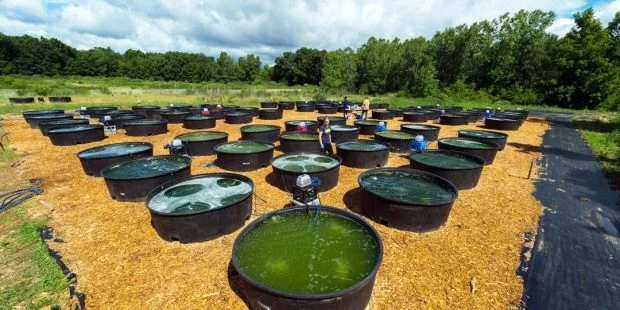Biofuels are renewable fuels produced from organic materials such as crops, agricultural waste, algae, or plant-based residues. Unlike fossil fuels, which take millions of years to form, biofuels come from resources that can be grown or regenerated each cycle. They can power cars, trucks, aircraft, and industrial systems while emitting fewer greenhouse gases, making them a practical bridge between today’s energy needs and a more sustainable future.
Biofuels are no longer experimental alternatives sitting on the edge of the global energy conversation. They have become viable, scalable, and increasingly necessary components of a modern economy that is under pressure to transition away from traditional fossil fuels. As nations confront rising energy demand, climate commitments, and economic diversification goals, biofuels offer a pathway that blends sustainability with industrial opportunity. The time has come for countries to pivot decisively into this sector.
A Transition Shaped by Economic Necessity
Many economies are searching for energy options that balance affordability, security, and environmental responsibility. This is where biofuels fit naturally. Derived from crops, agricultural waste, algae, and organic residues, they create a renewable supply chain that reduces dependence on imported oil.
For developing nations, this shift offers an opportunity to stabilise budgets, strengthen rural economies, and build a new industrial base around sustainable fuel production. The economic logic alone gives biofuels a strong foundation in the energy transition.
Agriculture as a Strategic Engine
Biofuels turn agriculture into a catalyst for industrial growth. Countries rich in farmland or biomass waste can expand local production, create processing hubs, and empower smallholder farmers.
This integration connects agriculture to manufacturing, logistics, and export potential. Nations that embrace biofuels early build industries with long-term value. These are industries that create jobs, stimulate innovation, and keep energy spending within the local economy.
The Environmental Case That Strengthens Global Commitments
Biofuels significantly reduce carbon emissions when compared to traditional fuels, allowing countries to move closer to climate targets without compromising economic growth.
The impact is especially clear in sectors such as aviation, shipping, and heavy transportation, where alternatives like batteries and hydrogen are still expensive or technically limited.
For countries aiming to reduce emissions while maintaining industrial momentum, biofuels present one of the most realistic bridges to a lower-carbon future.
Energy Security Through Local Production
A modern economy cannot thrive without stable, predictable energy. Global oil markets are volatile, often driven by geopolitical conflict or supply cuts.
Biofuels reduce this vulnerability. By producing fuel domestically, nations gain control over a portion of their energy supply. This improves long-term planning, guards against sudden price shocks, and supports resilience during global disruptions.
For regions that import most of their fuel, this shift could dramatically strengthen economic independence.
The Pathway for Countries Preparing for a Post-Oil World
Biofuels have become enablers of economic transformation. Countries can utilise them in building research centres, establishing processing plants, and developing local expertise, creating a pipeline of skilled workers and innovators.
In this sense, biofuels act as a foundation for broader renewable energy growth. The industries built around them lay the groundwork for wider adoption of sustainable technologies.
A Global Shift That Cannot Be Delayed
The modern economy is moving toward energy systems built on sustainability, resilience, and local capacity. Biofuels align with all three.
For countries seeking relevance in the new energy landscape, hesitation comes with a cost. The early movers will develop industries, secure investment, and build export capacity. The late adopters will find themselves buying technology, paying a premium, and competing for opportunities already captured by others.
The Moment to Pivot Is Now
Biofuels offer more than fuel; they offer a strategy for long-term economic transformation. Nations that embrace this sector gain a powerful tool for boosting rural income, reducing emissions, supporting energy security, and positioning themselves for a post-oil future.
To ignore biofuels is to overlook one of the clearest opportunities in the global energy transition.
To embrace them is to prepare an economy for the realities of the next century.














